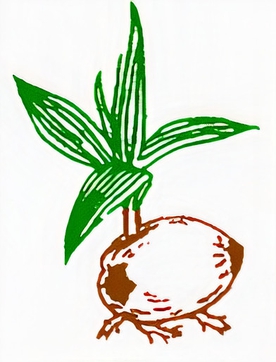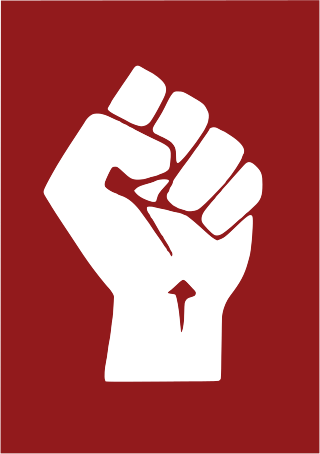
The Fiji Labour Party, also known as Fiji Labour, is a political party in Fiji. Most of its support is from the Indo-Fijian community, although it is officially multiracial and its first leader was an indigenous Fijian, Dr. Timoci Bavadra. The party has been elected to power twice, with Timoci Bavadra and Mahendra Chaudhry becoming prime minister in 1987 and 1999 respectively. On both occasions, the resulting government was rapidly overthrown by a coup.

The United Fiji Party was a political party in Fiji. It was founded in 2001 by Prime Minister Laisenia Qarase as a power base; it absorbed most of the Christian Democratic Alliance and other conservative groups, and its endorsement by the Great Council of Chiefs (Bose Levu Vakaturaga) caused it to be widely seen as the successor to the Alliance Party, the former ruling party that had dominated Fijian politics from the 1960s to the 1980s. It drew its support mainly from indigenous Fijiians.

The Liberal Party of Gibraltar is a liberal political party in Gibraltar. It was founded in 1991 as the Gibraltar National Party and is led by Dr. Joseph Garcia. The LPG forms the GSLP–Liberal Alliance in partnership with the Gibraltar Socialist Labour Party.

The National Federation Party is a Fijian political party founded by A. D. Patel in November 1968, as a merger of the Federation Party and the National Democratic Party. Though it claims to represent all Fiji Islanders, it is supported, in practice, almost exclusively by Indo-Fijians whose ancestors had come to Fiji between 1879 and 1916, mostly as indentured labourers. However, in the 2018 general election, the party recorded a considerable change in its support base due to the inclusion of more indigenous Fijian candidates.

The Mauritian Militant Movement is a left-wing socialist political party in Mauritius. The party was founded by a group of students in the late 1960s. The MMM advocates a fairer society, without discrimination on the basis of social class, race, community, caste, religion, gender or sexual orientation.

The National Alliance Party of Fiji (NAPF) was a Fijian political party. It was formally registered on 18 January 2005 by Ratu Epeli Ganilau, as the claimed successor to the defunct Alliance Party, which ruled Fiji from 1967 to 1987 under the leadership of the late Ratu Sir Kamisese Mara, Ganilau's father-in-law. Others involved with the party included university lecturer Meli Waqa as party secretary, and Manu Korovulavula as treasurer. The Deputy Leader was Hirdesh Sharma. The party was launched publicly at a mass rally in Suva on 8 April 2005.

The United Peoples Party was a minor political party in Fiji. It represented mainly General Electors and multiracial people, and claimed to follow moderate, centrist policies. From 2001 it was led by Mick Beddoes, the sole member elected from the party to the 71-member House of Representatives in the general election.

General elections were held in Fiji between 6 and 13 May 2006.

The Justice and Freedom Party (JFP) was a minor political party in Fiji. It was formed in 2000 to promote the interests of the Indo-Fijian community, and unsuccessfully contested the 2001 and 2006 elections. It was dissolved in 2013.

The Socialist Party of Malaysia, is a socialist political party in Malaysia and an offshoot of Parti Rakyat Malaysia, which originally upheld the same ideology.
The Mana Movement, originally known as the Mana Party, was a political party in New Zealand. The party was led by Hone Harawira who formed it in April 2011 following his resignation from the Māori Party. Harawira won the by-election in Te Tai Tokerau of 25 June 2011 for the Mana Party and retained the seat during the 2011 general election in November.
The People's Democratic Party was a political party in Fiji.

The Alliance of European National Movements (AENM) was a European political party that was formed in Budapest on 24 October 2009 by a number of ultranationalist and far-right parties from countries in Europe.
FijiFirst was a liberal political party in Fiji. The party was formed in March 2014 by then Prime Minister, Frank Bainimarama. It was deregistered on 1 July 2024.

General elections were held in Fiji on 14 November 2018. The result was a victory for the ruling FijiFirst party of Prime Minister Frank Bainimarama, which received just over 50% of the vote and 27 of the 51 seats in Parliament, a loss of five seats. The main opposition party, Social Democratic Liberal Party, gained six seats, whilst the National Federation Party retained its three seats.
HOPE was a political party in Fiji. The party was led by former National Federation Party president Tupou Draunidalo, and supported multiculturalism, a higher minimum wage, and the de-politicisation of the office of Attorney-General.

Trumpet of Patriots (ToP) is an Australian political party. It is currently registered to contest elections in New South Wales and the Northern Territory, as well as at federal elections.

General elections were held in Fiji on 14 December 2022 to elect the 55 members of Parliament. The elections took place following the passage of controversial electoral amendments.










